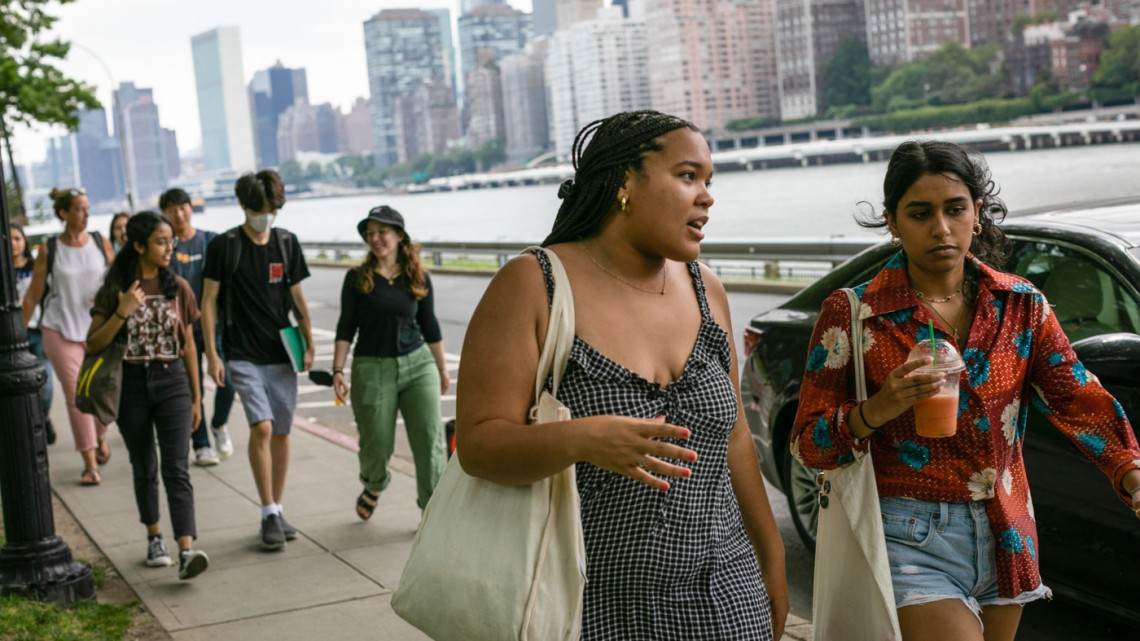
Milstein students explored the city on various outings.
News directly from Cornell's colleges and centers
Milstein students spend summer producing, questioning, exploring
By Kathy Hovis
At the end-of-summer showcase for students in the Milstein Program in Technology & Humanity, James Koga ’25 had a host of things on display: an interactive glove he developed and coded that allows people to create music or poetry by tapping their fingers; a 3D digital museum that he and other students built for artworks created by patients and residents of Coler Hospital on Roosevelt Island; a 3D-printed personalized charging station for his phone; and a few more things.
“Being a part of an inspiring cohort, at least for me, has inspired me to do all sorts of things,” said Koga, who plans to major in computer science, along with science and technology studies.
Koga was one of 29 Milstein students who spent eight weeks this summer at the Cornell Tech campus in New York City, where he created, learned, explored and wrestled with a number of societal questions about how technology could be used to:
- Provide products for people with hand mobility issues;
- Ease the voting process for people who don’t speak English;
- Increase access to mental health services;
- Encourage adults to read more;
- Improve the success of urban gardens;
- Help residents prepare for climate change and natural disasters;
- and tell their own personal stories.
While Milstein students are all huge fans of technology, summer program faculty also led them through exercises that helped them step back to consider technology’s impacts.
They considered how looking at the world’s big problems through a humanities lens can help them decide whether technology offers the appropriate solution. And they considered issues of accessibility and inclusivity, way beyond the normal definitions of those terms.
“Just because we can do something, does that mean we should do it?” said Howard Milstein '73, whose $20 million gift, with Abby Milstein and Michael Milstein '11, launched the Milstein Program in 2017. “In order to answer that question, we need to look back at civilization and the humanities for the answer. This program trains future leaders to ask the right questions about technology by bringing a humanities frame to the issues. It acknowledges that technology is essential for progress, but that humanities are essential for critical thinking.”
Read the entire story and see videos from this summer on the College of Arts & Sciences website.
Media Contact
Get Cornell news delivered right to your inbox.
Subscribe
